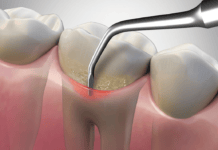True pain of any kind is an immeasurable and incomparable phenomenon that affects everyone at various times of their lives. Pain comes from many sources, tangible or not, and when one of our patients comes into the office with pain, we must assume that said pain not only stems from actual physical pain but also from psychological problems and social reactions to the cause.
Idiopathic Gingival Enlargement Causing Social Stigma is a qualitative study concerning a young woman of limited means and her confusion over and battle with severe idiopathic gingival enlargement. Her suffering is not confined to the pain she feels intraorally but emotionally and psychologically due to society’s elevated and unrealistic view of physical beauty.1
The aim of this study was to take a patient in dire need of care and report the changes that occur in the patient’s life, in general, after successful and meaningful treatment.1 Can quality and compassionate dental care lead to a healthier and more fulfilled life for our patients who suffer in all aspects of life from severe idiopathic gingival enlargement?
Patient Care
A young, married woman was brought into a specialized periodontology clinic by her father for intraoral pain. She couldn’t eat very well, refrained from laughing and speaking, and her relationship with her husband was severely diminished by this ‘physical pain’ that she experienced every minute of every day for several years.1
Having no previous and relevant dental or medical care in her life, general health-related anxiety was a given, but the levels seen by the researchers were astounding. Even young children attempt self-soothing in stressful and new situations in order to deal with their current situation. Though these attempts don’t always work, they do lessen the anxiety that a child may feel.1
The patient displayed no effort at self-soothing and never spoke to the dental team. It seemed as if, at 22 years of age, that she had given up on leading any sort of fulfilling life. Her father spoke for her, though she had no dreams or aspirations to speak of. Other than her dental issues, she had no other health problems reported by her father. The researchers stated, “She looked horrified, was silent, and did not utter a single word.” “Her father gave the entire history, and he even told that she never speaks in front of outsiders and restricts herself from laughing out loud due to fear of exposing her gingival overgrowth.”1
State Of Affairs
The patient came into the clinic with, as the researchers state, a “nodular enlargement with reddish-pink gingiva… malpositioning of mandibular incisors… and a thick band of plaque along with deep pockets and gingival inflammation.” Her gingiva had grown over her teeth, increasing decay and tooth loss, and the roots of lost teeth were still embedded within the gingiva.1
Treatment consisted of non-surgical periodontal therapy/SRP with repeated rinsing with chlorhexidine and the extraction of any remaining roots. She was given a gingivectomy, and enlarged gingival tissue was excised. Throughout treatment, the patient was given full education on dental hygiene and oral health maintenance. She was also given a smile as the practitioners cleaned, replaced, and rebuilt broken or missing teeth.1
Soon her husband began to bring her to her appointments. She was seen laughing and smiling with him in the waiting room. Positive self-esteem was radically increasing.1
Physical And Psychological Healing
Her demeanor during follow-up calls and appointments was just short of miraculous, and not just from a dental health perspective. The treatment that she received from the team brought out someone she forgot existed. She laughed. She conversed intelligently with the team who helped her. She no longer hid her smile.1
This patient was helped dramatically with her dental problems, allowing her to eat, drink, and open her mouth without some sort of pain coming from all directions. She reported a stronger relationship with her community, her family, and her husband, who was excited about her physical transformation and newfound confidence.1
By the third year after treatment, she is progressing amazingly and has given birth to two healthy children. She is happier, braver, and more independent. A compassionate, knowledgeable, and progressive dental team may have just saved a life and helped, however indirectly, bring two beautiful children into an increasingly happier household.1
Sometimes our job seems thankless, and we spend our days with our hands right in front of us in someone’s mouth. It can be easy to forget just how far our reach can actually be in a patient’s life. It could be suggested that this team specifically may have very well saved a life.
Essential care providers indeed!
Before you leave, check out the Today’s RDH self-study CE courses. All courses are peer-reviewed and non-sponsored to focus solely on high-quality education. Click here now.
Listen to the Today’s RDH Dental Hygiene Podcast Below:
Reference
- Kothari, D. Idiopathic Gingival Enlargement Causing Social Stigma. Contemp Clin Dent. 2021;12(1): 63-66. https://www.ncbi.nlm.nih.gov/pmc/articles/PMC8092100/











